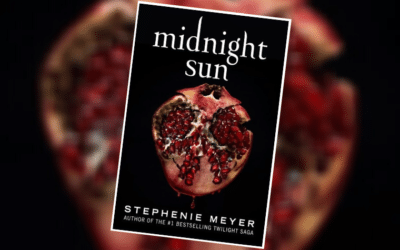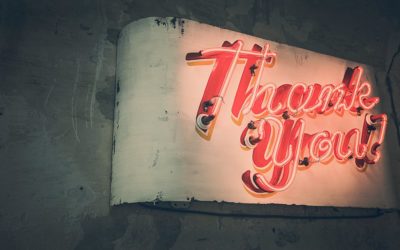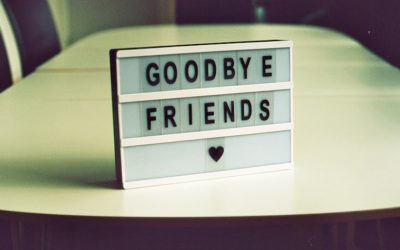Introducing our new Wednesday series for July: Spectacular Wednesdays.
As you know by now, our TN’s Boozy Book club book for July is The Spectacular Now by Tim Tharp. The movie comes out on August 2nd & we have some great interviews with a few people from the film coming your way each Wednesday this month!
Yesterday we, along with some of our friends from Fangirlish, Hypable, Page to Premiere, the YA Examiner & Young Adult Hollywood, we got a chance to chat with The Spectacular Now director James Ponsoldt. There are definitely spoilers ahead about how the movie differs from the book!
Interview with James Ponsoldt
Nikki: I wanted to ask you, you directed Smashed, an amazing film – thank you for bringing that to us. It was a story essentially about people in recovery with in it, essentially from alcohol. Sutter deals with a bit of a problem and some of the other people in his life in The Spectacular Now, so I kinda just wanted to see is there something that draws you to this material?
James: That’s a very logical question, isn’t it? Smashed was obviously a love story, a young married couple who are both dealing with alcohol and everything, co-‐dependent. When The Spectacular Now script came my way, I did have a bit of reservation. One, because it was a script other people had written and I had never done that before. I always directed my own thing. And then the second hesitation was I was aware that alcohol was part of the story. But then when I read the screenplay my fears were put to rest. And then when I read Tim Clarks novel, even more so. Because to me Spectacular Now is not a story about addiction, it’s not a story about alcoholism. It’s a complicated story about teenage boy, a teenage love story. Part of the way it’s grey, it’s part of his identity, but it’s not the defining feature of his identity. It was really important to me that we never defined him as an addict or as someone who is grappling with a disease. Anyways, I really went out of my way to make this a story not about alcoholism because that’s just not how I feel. I think that there are films that we see about teenagers that can be on one of two extremes. I mean on one side there are films about teenagers where they are all on crystal meth and raping each other and robbing banks. And then there is the other extreme where they are in malls and they are sort of wide eyed and judgmental. TO me this is a pretty accurate description of what high school was like for me. It was important to never talk about the drinking much. That’s a roundabout way of saying you know I am drawn to stories about really complicated people and flawed people and people who have demons but are trying things to get their life in order in one way or another. And for me it doesn’t really matter if they succeed or fail, what’s important to me is that they try. In that effort to try there is some hopefulness and I think that’s important to me and that is what draws me to these kind of stories.
Andrew: What drew you to Shailene Woodley and Miles Teller? What stood out about them? Did you find one first before the other? How did that all come together, casting those two?
James: I am a huge fan of both of them and was before I made this film. I had seen Shailene in The Descendants as I think most people did, and I was really blown away by her in that film. I hadn’t seen Secret Life of the American Teenager before that, so I really didn’t know who she was. And then what struck me about her in that film, was that character was kind of young, self-‐absorbed, kind of bratty, self-‐destructive angry teenagers. It reminded me of myself at that age. I had a big chip on my shoulder. I thought it was a really great performance, but a really specific performance that I hadn’t quite seen before. And what she reminds me of as an actor is a young Debra Winger or Barbara Hershey. A lot of my favorite actors from the 70’s. There is such complete intelligence and lack of vanity and a real dedication to truth and honesty and a focus on their characters. Shailene, I was really fortunate. She had read the script for The Spectacular Now, and she was a fan of it. She was really on the barometer of honesty that we were going to go for with all the actors. Actors that felt real and gave very specific performances that weren’t wrong, that weren’t flashy. You know a lot of things that you see in films that have teenagers. And then there is a handful where there are these performances and we obviously wanted to be the latter. Then with Miles, I had originally seen Miles in the film The Rabbit Hole, acting opposite Nicole Kidman. And again he was someone who I didn’t know who he was before seeing rabbit hole. I obviously knew who Nicole Kidman was and I was really blown away by him. While Nicole Kidman was the one that got the Academy Award nomination, which she deserved, part of the reason she got it was because of some of the incredible scenes that she had with Miles. The two of them on this park bench, the two of them dealing with grief. She is someone who lost her child and he was someone who accidently killed her child. It wasn’t a showy performance, it was really feel and you could look into his eyes and it reminded me a lot of my favorite actors. Guys like Tom Hanks or Jimmy Stuart or Henry Fonda. You know, guys that don’t have to act, they can just be. And then I saw Miles in the remake of Footloose and it was a complete 180 from that performance. And he’s just wildly charismatic and likeable and fun and reminds me of the people that I went to high school with. I couldn’t believe that it was the same kid, so I had to meet with him. So he and I met and talked for hours. I fell in love with his imagination and him as a person and I think he’s sort of a once in our generation talent. So I felt incredibly lucky to have Miles and Shailene together.
Amanda: Are you considering Miles at all for your next picture, Rodham? He’d be a good Bill Clinton.
James: Hahaha, that’s funny. We’re really early in development process on Rodham. It’s not something we are going to even shoot this year. I mean I just came onto it a few months ago. There is a script that has been wrote, essentially a first draft. So we have been slowly been going through that script and tightening it, bringing it to a place where it might be ready to shoot sometime in the next couple of years. So we aren’t really in a place where we are ready to talk casting yet. We don’t even have a casting director on the film. Miles could probably do anything so I wouldn’t put it past him.
Erin: I am sold on Miles Teller as an actor after seeing this movie. I thought he was incredible. My question for you was there anything that you shot that you wish would have made it onto the screen but you just couldn’t fit it into the movie?
James: Ya definitely there are. It’s a great question. There were definitely scenes that wound up getting edited out of the film. It’s always really hard. For a director you are really grateful now that there are the blue ray and DVD extras, so you know that you can fit all the scenes you want to. Sometimes you have to cut out scenes because you realize there are scenes shot that can’t fit in the film that you want to. Because you realize that there is just not room for everything, the story you are telling because you need to streamline it. There are a few scenes that we had to cut out but I think that they will probably wind up on the DVD bonuses. But ultimately I am really happy with all the scenes that made it into the film. It is the best version of the film.
Angie (I think – all I hear is Hollywood.com) : Not only are the two leads unbelievably talented, but the supporting cast is unbelievably talented, it’s just amazing. Jennifer Jason Leigh and Kyle Chandler. Can you talk a little bit about what that cast was like to work with?
James: Ya, it was a complete gift to have that ensemble of actors. Miles and Shailene were the first actors that we cast, because they really do dominate the story. I felt really fortunate that we were able to surround themselves with an ensemble that was just as capable of bringing warmth and humanity and feelings in the more dramatic stories. Brie Larson was the next person that we cast. I really just adored Brie. I saw her in Rampart acting opposite Woody Harrelson, an incredibly intense performance. Then I saw her in 21 Jump Street where she was hilarious. She has that gift like a lot of these actors of really handling comedy and drama. Mary Elizabeth Weinstead is in the cast. She was in Smashed. I think Mary is brilliant. I’d love to work with all the actors on anything. All of the young actors were fantastic including Kaitlyn Dever who I loved in Unjustified and Dayo Okeniyi who I loved in the Hunger Games and Mason Holton who I didn’t know before I auditioned him but he was wonderful as Ricky – Miles friend. Same with the adults. Some of the cast, a lot of my favorite actors. It was really sort of, I like casts that are sort of democratic. As much as we pull from television and feature film and whether indie or studio, comedy or dramatic world where you create a throne, that can be equally dramatic and kind of in the in-‐between – you know if you are going to do a film with a lot of young people, I think it’s equally important to acknowledge the drama and the history. I mean Jennifer Jason Leigh is one of the best actors alive. During Fast Times at Ridgemont High is when I first became aware of her. Kyle Chandler, for years as Coach Chandler on Friday Night Lights, in Americas living room each week. All American perfect father and coach, Jimmy Stewart kind of guy. It was really exciting for him to be this kind of absent father. When Miles finally does get to meet him, when the door opens, you get to see him, I think it’s a dramatic moment where you breathe a sigh of relief and you think oh he’s gonna be this great guy and of course he’s a much more complicated guy then that.
I didn’t realize he was in the movie until he opened the door. It was great.
James: Ya, supporting roles are the toughest. The toughest to get right and I think they can be really fun for an actor. Especially an actor if they have a persona – a persona where they are stars on television shows. James Gandolfini of the Sopranos, Bryan Cranston on his second TV series now, or Kyle Chandler… it really can pigeon hole them. Sometimes it can be, you can have some of the most gifted actors alive, but to see them in these roles. SO I think it can be hard sometimes to break out of these preconceived notion that people have. So I was thankful that Kyle was really… even though he’s only in the film for 10-‐12 minutes, you feel his presence. Because his kid sort of idolizes him. He thinks about him, he defines him. He’s really indelible and you only have so much time to make an impression on the audience. And I think if the audience brings him without all these preconceived notions, you can have fun with that. Which is to say people assume this is going to be the world’s greatest Dad and he’s far from that. He’s much more interesting than a guy that screams danger or bad father. And then there are others, Andre Rayo who I adored as bubbles on the wire. That was one of my favorite shows ever. Bob Odenkirk which people know now from Breaking Bad, was on some of the best sketch comedy shows ever. These are all shows, wither comedies or dramas – I think Andre brought a lot of levity and heart to the wire. I think that for me the goal was to bring an ensemble of actors who you really love and in any given scene you don’t know if it’s going to go to lighter or darker territory so that you are never completely telegraphing where the story is going to go.
Kimmy: There is a lot of really natural dialogue in this movie. It feels very real. I was just wondering did you guys improvise or did you stay really close to scripts? Did you work together to figure out what sounded natural I guess?
James: Ya, it was natural. You know, Tim Starks novel is amazing. I can’t say enough great things about it. You know and I don’t have too. It won international awards a few years ago so people naturally recognize it. That novel written from a first person internal monologue and it’s really Starks voice talking. You catch yourself saying – you know the book got a lot of comparisons to Catcher in the Rye. Neustadter and Weber, obviously they have a wonderful ear for dialogue. They captured Sutter and they did a beautiful job of capturing the spirit of Tim’s novel and you know, making it a screenplay. Obviously it’s a first person internal monologue, so they really did a beautiful job. It really was there on the page, but the great thing about making a movie is you get to collaborate with really brilliant people. You know you hire production designers and cinematographers and wonderful actors who have a real dedication to honesty, hopefully. People who want to make things as honest as possible. Actors like Miles and Shailene or Kyle and Jennifer – all these actors – the deal that I make with them at the beginning of the shoot is that they can try anything they want in front of the cameras as long as they are willing to try anything that I ask them. I think it creates sort of a foundation of trust. And you know I had a lot of conversations with the actors in the months leading up to shooting about their characters and about individual scenes. Just asking them, just trying to get on the same page seeing individual scenes the same way. But also I really tried to ask everyone if they thought things really weren’t as strong as they could be. It was a really open environment where anyone could throw out things. There were definitely places where the actors would say something like Umm… “I really like what this actor is trying to say here, but I don’t think that my character would articulate it that way. “ And then the conversation would be then, well how would he say it? Usually we would just make it something that we all felt was the best version of that character. I mean at the end of the day these actors are living and breathing that character 24 hours a day. And that’s what they have to focus on, where I am focusing on all the different pieces of the film. At the end of the day they are the best possible advocates for their characters. No one was really as in tune as those people were. Ya there is definitely dialogue that kind of evolved from the screenplay, because of the actors. For the most part by the time I got to set I already knew the part that the actors felt weren’t what they wanted to say. We had already made changes. Then there were little things on set where something spontaneous would just happen. Characters would just be walking and talking. You know that scene by the river where Sutter and Amy go for a walk and end up kissing – Miles kinda walked into a tree branch. He responds and they are so perfect, the actors, and the respond to each other with little bits of dialogue and little quick responses sometimes. They were very spontaneous and completely in line with the scene. They were advocating for the characters.
Nikki: This is definitely a coming of age story. What did you draw your inspiration from? What are your favorite films?
James: What are my favorite coming of age films?
Nikki: Or inspiration?
James: My chief inspiration really was the screenplay and the novel. Umm it wasn’t in leading up to the film that I was watching films and saying hey we should take this from that and this from that. It really was us trying to figure out how to tell his story as well as we could in a way that honored the story. In a way that was very specific to the way that I wanted to do it. With really honest actors that don’t all look like models. Not put much makeup on them and put them in real clothes. We filmed in Athens, GA which is where I am from. So we shot in the houses and streets where I grew up. It was all very, very specific. There are films that I kind of really, really love. Whether they deal with adolescence or movies that deal with romance, that are more dramatic than broad comedies. It includes The Last Picture Show or America Grafitti or Splendor in the Grass or Rebel Without a Cause. I really love The 400 Blows. Those are some of the ones I really love. I also Love Stand by Me. I think that’s a really great film. And other films that were romances but weren’t really about adolescence, that were really meaningful for me. Like Manhattan, or All The Real Girls. The approach was not to treat the movie like a coming of age film. The approach was to really respect the relationship, and respect the relationship between Miles and Shailene, which is complicated, and there are good things and very bad things about it. So as far as references for emotional tone, and shots, I looked at cinematographers and production designers for films where the characters were in their thirties or forties. The goal is just to respect the characters and not speak down to them, and to not make the film less mature or important just because the characters are seventeen or eighteen years old.
Andrew: There’s a really long scene, one shot, where the camera is just on them the entire time -‐ there are a couple of those throughout the film. Were those intentional, or were you planning to cut those up a little bit?
James: No, they were definitely part of the design from the earliest conversations. When I first met with the producers I put together a really thorough book, like a 60 page book of images from real life, stills from other movies, really articulating what the value system of what the movie would be. Then that sort of informed the conversations I had with my production designer, and the art director, and the cinematographer, and the art director, and the costume designer. The goal was to have a lot of scenes that breathed, and allowed the audience to feel like they were in the room, or in the woods with these characters. We actually get to see a conversation that sort of has this ebb, and flow, sort of like a heartbeat where you feel something building. I think there’s something to be said for moments that are allowed to play out in real time, and watch them develop in front of your eyes. I don’t think you can quite create that, and fake the time that in in those moments. Of course you need really phenomenal actors that can do four and a half pages of dialogue without coverage, and a cinematographer. Since if they are walking and talking the entire time they need to be able to capture it in a beautiful way. If you mess up once, it’s kind of useless. It’s a little bit unnerving for some people, this fear factor that if you don’t get it right, then what to do you have? It heightens everyone’s focus in a scene if they know that’s how you’re going to shoot it. If you watch a lot of broad studio comedies, where the acting isn’t so good, they’re kind of made like bad television. Just a master and different close ups and they just cut, cut, cut, cut constantly. They’re trying to piece together an honest moment in something that is fundamentally dishonest. I think if you’re fortunate enough to have a really lovely script and really amazing actors, the entire thing will be honest and you just have to capture it and have a platform for it. You can’t have a film that is entirely those moments because then it would be incredibly slow. Just especially those moments that are leading up to the first kiss, there’s an innate tension that just builds until it happens.
Or, the sex scene. The goal was to capture something that wasn’t just a sex scene or just romantic. It was goofy, it was awkward, it was scary. The characters are nervous! Then perhaps it is sexy and romantic, all of those things at once. I think most people’s first kiss or the first time they had sex probably wasn’t the best kiss or the best sex they’ll ever have. It was probably a little bit awkward, it was probably clumsy. That’s okay, that’s wonderful, that’s human. It’s universal and people can relate to that. The goal is to just allow moments to play out awkward and fumbling and filled with anxiety and hope. Just as these things happen in real life, when we are in those situations.
Kimmy: What scared you about making this film?
James: I’m scared about a lot of things! I’m very honest, I don’t try to hide them. I was scared about directing someone else’s script, that other people had written. That maybe they’d be incredibly precious about their script, that if things had to change and evolve to my style, that other people wouldn’t be open to it? Of course they were wonderfully open to it, I had the full support of everyone. I was scared that I wouldn’t do justice to Tim Tharp’s book, which is brilliant. I was afraid that he’d hate the movie when he finally saw it. He’s been a wonderful support, he went to Sundance with us, he did Q&As, he’s been a wonderful supporter of the film. I was scared of taking on a quote on quote “teen movie,” which I think brings a lot of assumptions. This movie’s going to be very immature, it’s going to be like dick jokes, or something. It’s going to be very crude, in a way that people wouldn’t make those assumptions, if it was adult relationship. People would just call it a drama, or a romance, or a romantic drama. It was really important for me to wrestle with myself to try to figure out what I could bring to this story and what I could bring to this genre. I thought a lot about the difference between nostalgia and sentimentality. I think when we make stories about youth there is an innate sense of nostalgia, there’s a level of sadness to it, because that part of our life is over when we look back at it as adult story tellers. I think that’s fine, and think that’s a lovely thing. The truth is, when you’re seventeen or eighteen everything is not great, high school can be a horrifying time. Your body is rebelling against you because you’re hormonal, it’s a tough place. You get your heart broken, you have no idea what you’re going to do with the rest of your life, you have no idea who you are. I think wide-‐eyed sentimentality and the tendency to white-‐wash youth and make it seem like everything was great, and those were the “good old days” -‐ I think that can be really gross. It’s like a cheesy, bad, pop song. As opposed to that brings across the highs and lows of romance. I think it was really important to me that we capture that tone. That it had hope, and that it had humor, but it was also attached to the pain and anxiety of adolescence. Then, I was just scared that we wouldn’t have enough time and money to make the movie the way it was required to be made! It was an independent film so the entire shoot was a sprint. We didn’t have time to mess up or lose a day because of weather or because one of the actors wasn’t feeling it. Every day that we had, we had to get right. We had a lot of scenes -‐ there’s sex, and car accidents, and huge prom scenes-‐ there were a lot of moving pieces. I was afraid that we couldn’t pull it off, but everyone really came together. We had a really amazing cast and crew, and the support of everyone in Athens, Georgia. Being an arts community, it was very supportive of our shoot. Everyone bent over backwards to help us out. The film couldn’t have been made without the generosity of all those people. Those were some of the things I was afraid of! I promise I’m scared of many more things.
Nikki: You have any dream projects you’d like to work on?
James: I like genre film making, I’ve made three features and all of them have been real naturalistic dramas that have humor but they also go to dark places. That being said, I really love action films, and horror films, and musicals…and sci-‐fi! Some of the projects that I’m developing have elements of those and it’s really exciting to me. I don’t want to make the same film over and over and over, I want to bring a level of honesty and emotion to the films that I make. I want to bring very fantastic performances, because I love actors, to those stories. I hope to work in many different genres, so that’s really my hope. I hope people when they see my movies don’t know what they’re going to get, I hope I surprise people as a storyteller.
Thanks to Erin from Fangirlish & Kimmy from Page to Premiere for transcribing! xo





